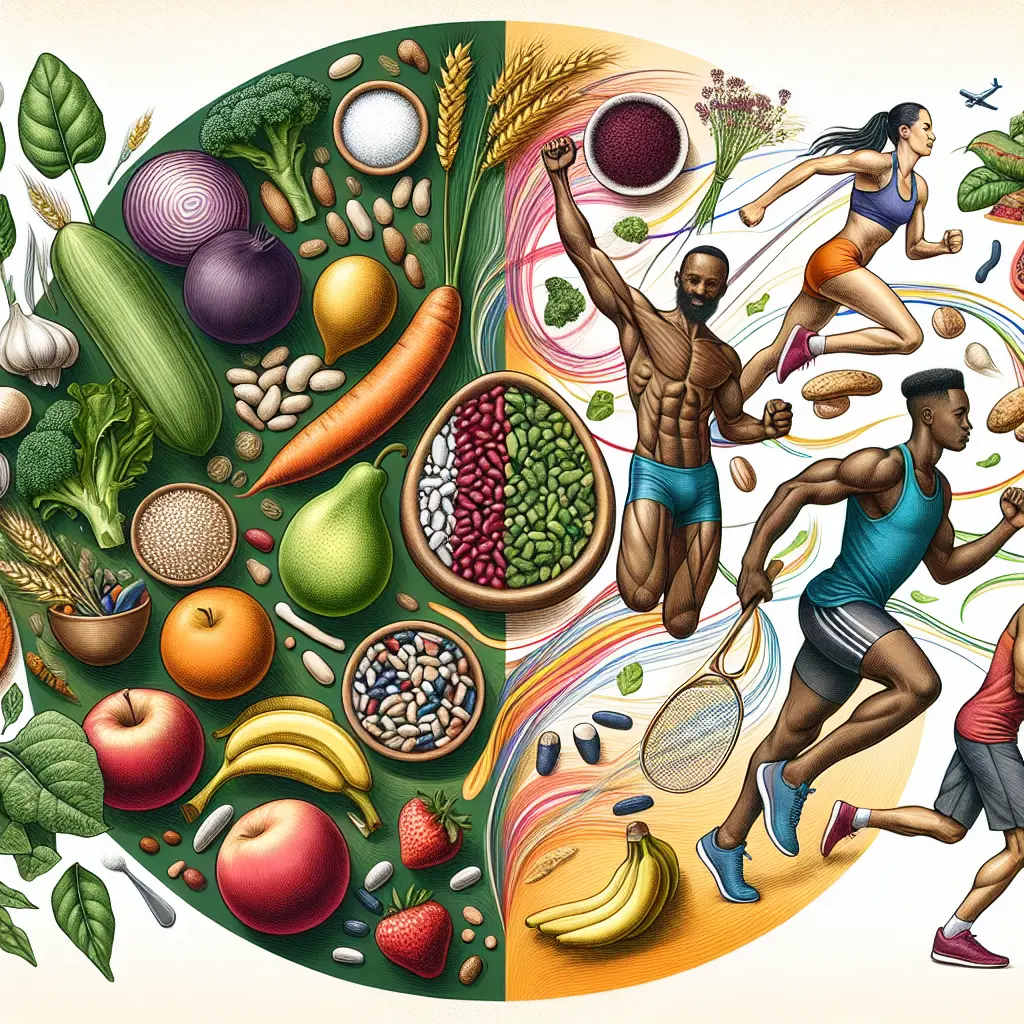
In recent years, the rise of vegan athletes has challenged long-held beliefs about diet and performance in the world of sports. The integration of a plant-based diet for athletes is not just a trend but a profound shift towards understanding how nutrition impacts the human body under extreme physical demands. This shift is supported by numerous studies and the personal experiences of athletes who have adopted a vegan sports nutrition regimen.
Plant-Based Diet and Athletic Performance
The core of vegan sports nutrition revolves around optimizing intake of vegan protein sources, ensuring muscle recovery, and maintaining high energy levels—all crucial for peak performance. Vegan protein sources like lentils, quinoa, and tempeh provide essential amino acids that aid in muscle repair and growth, challenging the misconception that animal protein is necessary for building muscle.
The benefits of veganism in sports extend beyond muscle growth. Research shows that a vegan diet can reduce recovery time, thanks to the anti-inflammatory properties of plant foods, which help in quicker recovery from strenuous workouts and competitions. A study published in the Journal of the International Society of Sports Nutrition highlights that a plant-based diet can significantly reduce inflammation and improve heart health, making it an excellent choice for athletes who need quick recovery periods (Source: International Society of Sports Nutrition).
Veganism and Muscle Growth
Contrary to popular belief, veganism supports muscle growth efficiently. The key is consuming a variety of plant-based protein sources to cover all essential amino acids. Integrating foods like soy products, grains, and beans can promote muscle synthesis comparable to diets containing meat. Furthermore, plant-based diets are high in nutrients necessary for muscle repair and growth, such as antioxidants and vitamins.
Endurance and Strength on a Vegan Diet
Endurance athletes on a vegan diet often report enhanced performance and stamina. The high carbohydrate content typical of plant-based diets provides ample glycogen stores, the muscle's primary energy source during prolonged exercises. Studies suggest that a vegan diet not only supports but can enhance endurance levels, thanks to improved blood viscosity which allows more oxygen to reach the muscles, enhancing athletic performance (Source: American Journal of Clinical Nutrition).
In the realm of strength training, vegan athletes have proven that plant-based diets provide sufficient nutrients to maintain and increase strength. Notable vegan athletes in strength-based sports have demonstrated that with proper planning, achieving peak physical condition is entirely possible on a plant-based diet.
Supplements for Vegan Athletes
While a well-planned vegan diet can meet most nutritional needs, certain nutrients may require more attention. Vegan supplements for athletes commonly include vitamin B12, iron, calcium, vitamin D, and omega-3 fatty acids. These supplements help fill any nutritional gaps and support overall health and performance.
Impact on Energy Levels and Muscle Endurance
Many athletes transitioning to a vegan diet notice an improvement in their energy levels. This boost is often attributed to the higher intake of complex carbohydrates, fruits, and vegetables, which provide sustained energy. Moreover, plant-based diets can improve muscle endurance by enhancing tissue oxygenation and reducing oxidative stress during high-intensity activities.
Recent Insights and Cultural Shifts
The cultural perception of vegan athletes is shifting as more high-profile sports figures adopt plant-based diets. These power athletes are redefining what strength looks like on a plant-based regimen and demonstrating the diet's efficacy through their performance and recovery times.
A recent study highlighted an interesting aspect of aging and diet: an eight-week plant-based diet was found to reduce biological age by approximately 7.5 months, suggesting significant long-term health benefits (Source: Impact Ageing). This finding is particularly relevant to athletes interested in longevity in their careers and life.
Moreover, discussions around "Ento-Veganism" – the practice of consuming insects as part of a vegan diet – are emerging within the community, indicating a nuanced exploration of sustainability and ethical eating practices.
Challenges and Considerations
Despite the advantages, some athletes face challenges while adjusting to a vegan diet. Issues such as dietary restrictions leading to insufficient calorie intake or improper balance of nutrients can impede performance if not carefully managed. However, with the increasing availability of resources and professional guidance on vegan sports nutrition, these challenges are becoming easier to navigate.
Conclusion
The integration of a vegan diet in sports is not just about dietary choices but about pushing the boundaries of what the human body can achieve with optimal nutrition. Vegan athletes continue to break stereotypes, proving that plant-based performance is not only viable but potentially superior in various aspects of health and athletic performance.
As we move forward, embracing radical ideas like veganism could be crucial in not only advancing sports performance but also in promoting sustainability and ethical practices in our everyday lives.
Lucas Sheridan